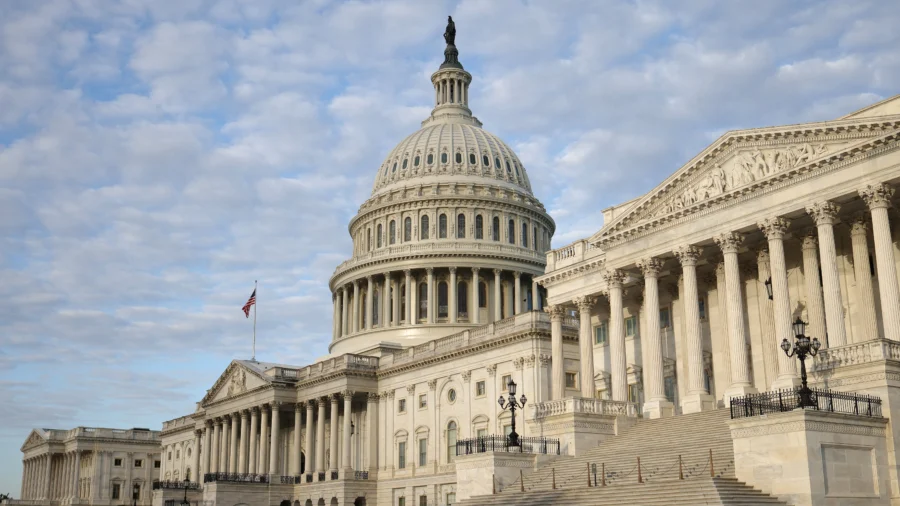The House passed measures on Nov. 1 targeting the terrorist group Hamas and its backer Iran as the Israel-Hamas conflict approaches the one-month mark.
The Hamas International Financing Prevention Act, introduced by Rep. Brian Mast (R-Fla.), passed 363-46, with one Republican joining 45 Democrats in voting against it.
It would impose sanctions on foreign states and persons supporting Hamas and Palestinian Islamic Jihad (PIJ), which is also a U.S.-designated terrorist organization.
The bill would require the president, within 180 days of enactment, to impose sanctions on foreign persons and foreign states supporting Hamas.
The measure would expire after seven years or 30 days after the president certifies that Hamas, PIJ or their affiliates are no longer subject to sanctions.
Foreign states that provide support to Hamas would not receive U.S. assistance for at least one year.
Moreover, the president would be required submit a report to Congress with an assessment of the activities and assets of Hamas, PIJ and their affiliates and lists of states providing certain kinds of support to Hamas. This report would be submitted no “later than 90 days after the date of enactment of this Act, and every 180 days thereafter.”
The three-page resolution condemning Iran’s nuclear program, introduced by House Foreign Affairs Committee Chairman Michael McCaul (R-Texas), passed 354-53, with 50 Democrats and three Republicans voting against it.
The resolution stated “it is the policy of the United States that a nuclear Islamic Republic of Iran is not acceptable; that Iran must not be able to obtain a nuclear weapon under any circumstances or conditions; to use all means necessary to prevent Iran from obtaining a nuclear weapon; and to recognize and support the freedom of action of partners and allies, including Israel, to prevent Iran from obtaining a nuclear weapon.”
Among numerous points, the resolution stated that “Iran is now in possession of irreversible and dangerous nuclear knowledge” and that “ongoing nuclear escalation poses a serious threat to the United States and its partners and allies including Israel.”
The resolution noted that Iran has enriched uranium at 60 percent purity. Iran made this move after a 2021 attack on one of its nuclear facilities. Purity, according to the United Nations-affiliated International Atomic Energy Agency, is “the ratio, expressed as a percentage, of the radioactivity of the desired radionuclide to the total radioactivity of the source.”
It also cited that Iran has enriched uranium to 90 percent, which is weapons-grade material.
As noted in the resolution, in January, IAEA General Rafael Grossi stated that Iran ‘‘amassed enough nuclear material for several nuclear weapons.” The measure also quoted former Joint Chiefs Chairman Mark Milley saying in March, “Iran could produce fissile material for a nuclear weapon in less than two weeks and would only take several more months to produce an actual nuclear weapon.”
The resolution mentioned that “IAEA investigators found uranium particles enriched to 83.7 percent at Iran’s Fordow nuclear facility in January 2023.”
The measure sounded the alarm that “Iran’s ongoing nuclear escalation poses a serious threat to the United States and its partners and allies including Israel” and that “international complacency toward Iran’s illicit nuclear program threatens the global nonproliferation regime.”
From The Epoch Times


